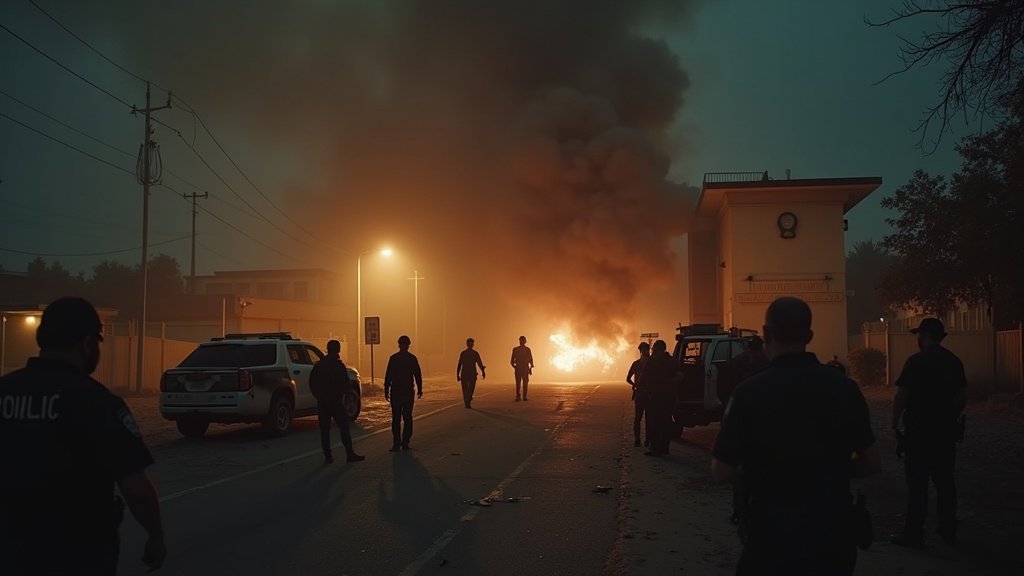A significant legislative development in Texas is poised to reshape the landscape of sexual assault law, offering survivors new avenues to pursue justice. Lawmakers in the state capitol recently approved legislation aimed at fundamentally updating existing statutes, notably by providing a clear definition of consent and addressing what advocates have long identified as a critical loophole that hindered successful prosecution and civil action.
The measure, known as House Bill 3073, carries profound implications for how sexual assault cases are approached within the Texas legal system. Its passage marks the culmination of years of advocacy and legislative effort, spanning three distinct legislative sessions before ultimately securing the necessary support for enactment.
The Summer Willis Act: A Legacy of Advocacy
Central to the narrative surrounding House Bill 3073 is the compelling story of Summer Willis, a sexual assault survivor whose tireless advocacy became a driving force behind the legislative push. In recognition of her profound impact and dedication, the bill has also become widely known as the Summer Willis Act.
Ms. Willis’s journey from survivor to influential advocate underscores the personal stakes involved in reforming these critical laws. Her willingness to share her experience and channel it into tangible legislative change galvanized support and highlighted the urgent need for updated legal definitions and procedures.
Defining Consent and Closing the Loophole
One of the most impactful provisions of House Bill 3073 is its explicit definition of consent within the context of sexual activity. Prior Texas law had been criticized by legal experts and survivor advocates for lacking a sufficiently clear standard, which could create ambiguities in prosecution and make it challenging for survivors to demonstrate that sexual activity occurred without their voluntary agreement.
The legislation aims to rectify this by providing a definition designed to offer clarity and align state law more closely with contemporary understandings of consent – typically framed around affirmative, knowing, and voluntary agreement. This change is anticipated to strengthen the ability of prosecutors to bring charges and for survivors to navigate the legal system with greater certainty.
Equally critical is the bill’s success in addressing what advocates specifically termed a “loophole” in previous statutes. While the summary does not detail the precise nature of this loophole, its identification by advocates suggests it was a specific legal technicality or omission that inadvertently created barriers to justice for survivors. By fixing this element, House Bill 3073 endeavors to remove structural impediments that may have previously prevented survivors from seeing their cases move forward or achieving a just resolution.
Advocates had long argued that the confluence of an unclear consent definition and this identified loophole created a challenging legal environment for survivors, often leading to cases being dropped, dismissed, or facing insurmountable hurdles in court. The reforms enacted through HB 3073 are designed to dismantle these barriers.
The Long Road to Passage
The journey of House Bill 3073 through the Texas legislature was not swift or simple. Its consideration across three legislative sessions indicates the complexity of the issues involved and the extensive negotiation and deliberation required to build consensus among lawmakers. Bills addressing sensitive and complex social issues like sexual assault often require sustained effort over multiple legislative cycles to gain traction and secure final passage.
This protracted legislative process underscores the commitment of the bill’s proponents, including Summer Willis and supporting lawmakers, to persevere despite previous setbacks or delays. The eventual passage last month represents a significant legislative victory after years of dedicated work.
Advocacy in Action: The 22-Hour Crawl
The passage of the Summer Willis Act was significantly bolstered by public awareness campaigns led by advocates. A particularly poignant and impactful demonstration of this advocacy was undertaken by Summer Willis herself.
In a powerful act designed to draw attention to the proposed legislation and the plight of survivors, Ms. Willis undertook a 22-hour crawl. This arduous physical demonstration, carried out before the Austin marathon, served as a potent symbol of the difficult and often agonizing journey survivors face in seeking justice.
The decision to perform the crawl in Austin, Texas, preceding a major public event like the city’s marathon, strategically maximized visibility and media attention. The 22-hour duration itself conveyed a message of endurance and the prolonged struggle often involved in recovering from trauma and navigating legal systems. The act was not merely symbolic; it was explicitly linked to raising awareness for House Bill 3073, directly connecting the personal struggle of a survivor to the need for legislative change.
Legislative Support and Recognition
The advocacy efforts, including Ms. Willis’s compelling crawl, resonated with lawmakers and helped solidify political support for House Bill 3073.
Following her 22-hour demonstration in Austin, several key legislators joined Ms. Willis, publicly acknowledging her efforts and signaling their support for the bill. Among those who stood with her were Representatives Julie Johnson and Donna Howard, alongside Congressman Lloyd Doggett. Their presence underscored the bipartisan nature of the support for the legislation and highlighted the commitment of elected officials at both the state and federal levels to addressing the critical issues surrounding sexual assault and survivor justice in Texas.
The involvement of these lawmakers after the crawl served to amplify the message, translating public awareness generated by Ms. Willis’s act into political momentum within the legislative chambers. Their support was crucial in navigating the bill through the final stages of the legislative process.
Looking Ahead: Impact on Survivors
The ultimate goal of House Bill 3073, as described in the summary, is to allow more survivors to pursue justice. By clarifying the definition of consent and fixing the identified loophole, the law is intended to remove legal ambiguities and technicalities that may have previously prevented survivors from reporting assaults, participating in criminal investigations, or pursuing civil remedies.
The updated legal framework is expected to empower survivors by providing them with a clearer path within the justice system. While legislative changes alone cannot erase the trauma of sexual assault, laws that are clear, comprehensive, and survivor-centered are considered essential tools in fostering accountability and promoting healing.
The passage of this bill represents a significant step forward in Texas’s efforts to address sexual violence and support those affected. It reflects a growing understanding of the complexities survivors face and a legislative willingness to adapt state laws to better serve their needs.
Advocates and lawmakers involved in the passage of the Summer Willis Act express optimism that these changes will lead to more effective prosecution of sexual assault cases and provide survivors with a stronger legal foundation upon which to seek accountability and justice for the harms they have endured. The implementation and effects of the new law will be closely monitored as Texas continues to navigate the complex challenges associated with sexual assault and the pursuit of justice.






